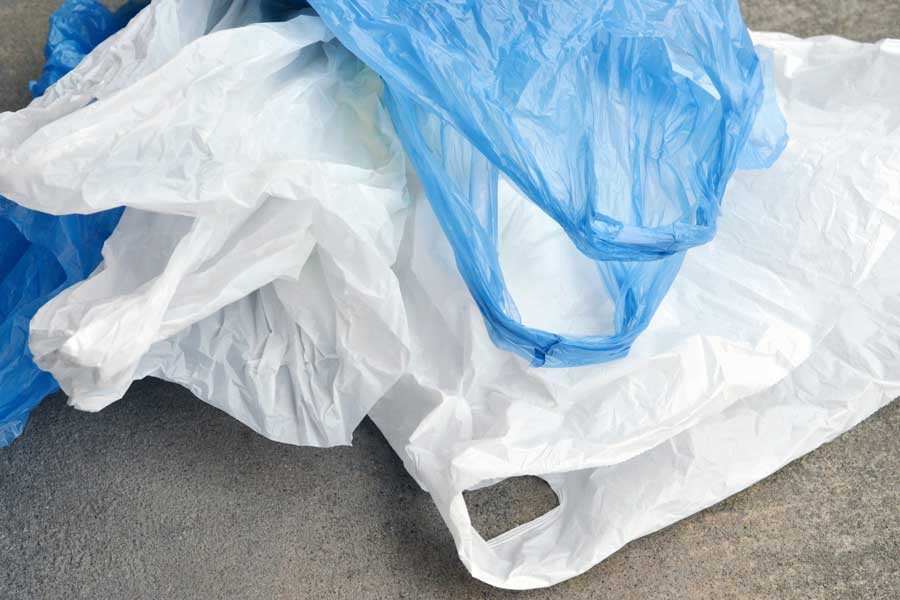Growing use of polythene and plastic is indeed a serious global concern. The threat to Bangladesh from these non-biodegradable materials full of toxic chemicals is far greater because the population size here is disproportionately greater compared to the land area. If 1.0 million metric tonnes of plastic waste is produced --- as a private organisation, Waste Concern estimates --- annually in such a small geographic area, with the major portion not coming under recycling, the danger to the environment is beyond imagination. About 0.30 million tonnes of this plastic debris end up in open spaces and water bodies ---from small ponds to ocean. Degraded macroplastics then turn into microplastics, causing irreversible damage to freshwaters and marine ecosystem. Several layers of polythene deposit in the Buriganga river's bed found during dredging and the accumulated plastic debris littering the Cox's Bazar sea beach only a couple of months before only confirm the apprehension of the grave danger facing this nation.
So far as polythene bags are concerned, there is no authentic estimate of their manufacture, marketing and use; but according to the Bangladesh ParibeshBachaoAndolon, about 20 million such discarded bags end up as waste in Dhaka every day. During the pandemic, use of such bags has increased exponentially and made further worse by polythene's use as protection gears such as hand gloves. In fact, people here are speeding up an environmental time bomb to explode just for the sake of convenience. Some of the microplastics, according to experts, are unlikely to disintegrate before four centuries. If the country's water systems get polluted by polythene and plastic debris, its environmental and economic costs will prove disastrous for future generations who may not forgive their ancestors for this stupendous crime. If the current rate of disposal of plastic and polythene goes unabated, globally there could be one tonne of plastic for every three tonnes of fish in the ocean.
However Bangladesh had the distinction of becoming one of the earliest countries to have banned the use of polythene bags. Initially, after the law came into effect in 2001, polythene more or less disappeared from the market and people started using paper packets, cotton or jute bags and shopping nets. But soon the early enthusiasm died down and polythene made a return ---first tentatively and then more aggressively than before. One of the reasons is the absence of a suitable replacement for this handy and cheap carry bag.
Sure enough, human habit is responsible for this blunder committed on a daily basis. If people just made some extra effort and a little sacrifice, the nation could continue avoiding polythene bag's use. That drives against trading in polythene bags are occasionally launched is nothing but a double standard. Without cutting the source ---open production in factories that is -such drives are simply an eye wash. Against this bleak development, the only ray of hope comes from the invention of jute cellulose with which bags have been made as thin and water resistant as polythene but more durable. However, one such bag now costs Tk 10. Mass production will definitely bring the cost within customers' reach or alternatively further research will do the trick. In that case, jute may regain its preeminent position of cash crop.


